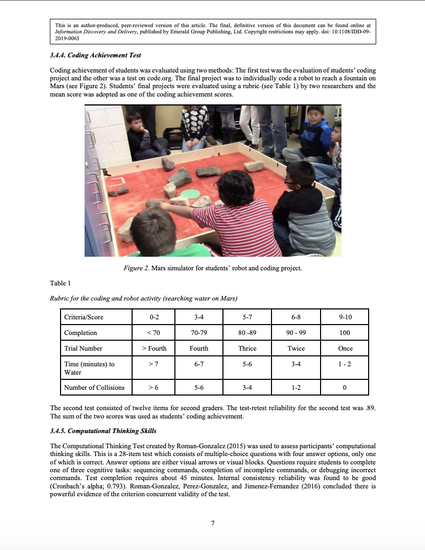
This study investigated the relationship between the personal traits and computational thinking skills of second graders within the context of robotics activities. The hypothesized model showed that learning preference, intrinsic motivation, and self-efficacy were the main predictors of coding achievement and computational thinking skills, while no direct relationship was found between learning preference, intrinsic, or extrinsic motivation. The final path analysis revealed that intrinsic and extrinsic motivation predict self-efficacy, self-efficacy predicts coding achievement, and coding achievement predicts computational thinking skills. Another important finding was the strong impact of self-efficacy on coding achievement as well as computational thinking skills. Results are interpreted with reference to implications for potential methods of improving computational thinking skills when using robotics in the lower grades in elementary schools.
Available at: http://works.bepress.com/dazhi_yang/51/
